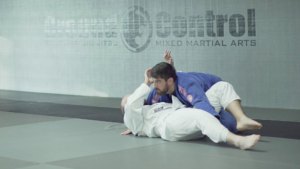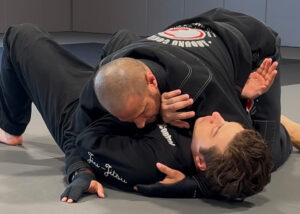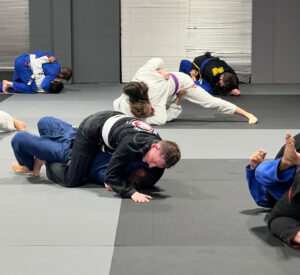
From Jiu-Jitsu to the Cage: Making a Confident Move Into MMA
You’ve put in the hours on the mats—drilling, rolling, building a solid ground game—and now you’re thinking about stepping into something more intense: MMA. It’s
Hey there, fellow grapplers! Are you ready to take your Brazilian Jiu-Jitsu (BJJ) game to the next level? Well, you’re in luck because today, we’re discussing guards – those essential positions that can make or break your BJJ journey. From defense to offense, we’ve covered you with the ultimate guide to guards in BJJ.
First, let’s talk about what guards are and why they’re crucial in BJJ. Guards are defensive positions used to control and manipulate your opponent while on the ground. They’re like your first line of defense, allowing you to protect yourself from attacks and set up your offensive moves. In other words, mastering guards is key to becoming a well-rounded BJJ practitioner.
Now, let’s break down some of the most common guards you’ll encounter on the mats:
Ah, the classic closed guard – a favorite among beginners and seasoned grapplers alike. In the closed guard, you wrap your legs around your opponent’s torso, creating a tight barrier restricting their movement. The possibilities are endless here – you can go for submissions like armbars and triangles or sweep your opponent to gain a dominant position.
Unlike the closed guard, the open guard involves keeping your legs free and mobile. This guard offers mobility and versatility, allowing you to attack from various angles and directions. With the open guard, you can unleash a barrage of sweeps, submissions, and transitions, keeping your opponent guessing at every turn.
As the name suggests, the half guard involves trapping one of your opponent’s legs between your own. This guard offers a unique blend of offense and defense, allowing you to control your opponent’s movement while setting up sweeps and submissions of your own. With the half guard, you can turn the tables on your opponent and secure a dominant position in seemingly unfavorable situations.
The butterfly guard is all about leverage and control. In this guard, you sit up with your opponent’s legs trapped between yours, using your feet and hands to off-balance them and set up attacks. With the butterfly guard, you can launch powerful sweeps and transitions, putting your opponent on the defensive and opening up submission opportunities.
If you want to control your opponent’s posture and create distance, the spider guard is your go-to option. In this guard, you use your legs to control your opponent’s arms, preventing them from closing the distance and setting up their attacks. With the spider guard, you can easily keep your opponent at bay while setting up sweeps, submissions, and transitions.
So, there you have it – the ultimate guide to guards in BJJ. Whether you’re a beginner looking to learn the basics or a seasoned grappler aiming to refine your skills, mastering these guards will surely take your BJJ game to new heights. So, get out there, hit the mats, and experiment with different guards – you’ll be amazed at what you can achieve!
Ready to put your guard skills to the test? Join us at Ground Control and let our experienced instructors help you unlock your full potential in Brazilian Jiu-Jitsu. With expert guidance and a supportive community by your side, there’s no limit to what you can accomplish on the mats. See you on the mat!

You’ve put in the hours on the mats—drilling, rolling, building a solid ground game—and now you’re thinking about stepping into something more intense: MMA. It’s

At Ground Control Columbia, our advanced athletes know the real battles don’t always happen in submissions—they happen when you’re fighting to keep your guard alive.

Every dedicated Brazilian Jiu-Jitsu practitioner will, at some point, experience a plateau. It’s that tough phase where progress feels stagnant, your go-to techniques aren’t landing
© All Rights Reserved. Ground Control Columbia